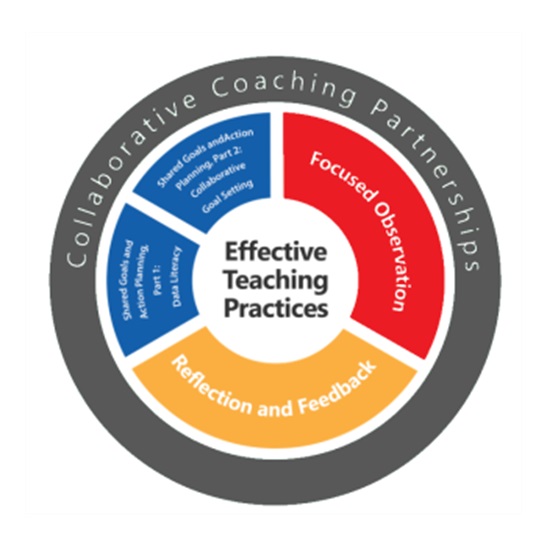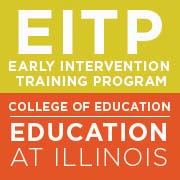In the new routines-based embedded coaching paradigm, speech-language pathologists are interventionist whose prime goal is to empower parents with a refreshingly unique evidence-based approach that ensconces the child-caregiver dyad, by teaching parents to embed strategies into already existing child activities & routines so as to help children achieve expressive & receptive speech outcomes.
In a refreshingly new conceptual approach to service provision that rejects the ensconced educational model based on the ‘blocked trials’ approach to education and therapeutic intervention, this presentation in embedded coaching will teach caregivers to:
· Identify embedded coaching routines intervention as a paradigm where interventionists teaching parents to embed strategies into already existing child activities & routines to help them achieve outcomes.
· Identify that routines-based caregiver coaching is about family capacity building via a front-loading frequency strategy with an ultimate goal for caregivers to generalize without support of interventionists.
· Identify embedded coaching as caregiver chosen routines – and how the interventionist should embolden the parent to be architect of embedded strategies that allow the child to reach their IFSP goals.
· Identify how the embedded coaching paradigm is supported by the Federal and State laws governing the Early Intervention Program.
· Identify the components of the superseded as ‘blocked practice’ or ‘massed trials’ approach to educational and therapeutic intervention.
· Identify the benefits of ‘inter-leaved’ or random-practice learning which underlies the routines-based embedded coaching concept, which is shown to promote accelerated, enduring, and more flexible learning.
· Identify concrete examples of embedded coaching for their professional discipline.
· Identify how to observe family activities, how to embed specific intervention strategies in a variety family routines and activities, and how to quietly observe during the subsequent reflection time in the parent-child dyad.
· Learn how to identify by observation, provide specific strengths-based feedback to caregiver, identify an opportunity for embedded insertion into a child routine/activity, followed by choosing several routines in those teachable-moments in which to embed strategies with caregiver playing an equal and eventually principal role in the process.
· Identify how embedding occurs in a multi-tiered cycle where a formulary for each routine includes observation, problem solving, modeling the embedded strategy, and reflection.
Speech-language pathologists play an important role in fostering a child’s receptive and expressive language skills through incorporating developmentally appropriate activities, tracking key milestones, and acting early if there are any concerns. This ROUTINES-BASED EMBEDDED COACHING primer is a MUST READ for all early intervention and pre-school speech therapist professionals who service the professional needs of the infant, toddler, and child with developmental delay.
Sign up now!

ASHA LEARNERS PLEASE NOTE: There are 2 purchase options above, EI Continuing Education and CEU. If you wish to earn ASHA CEUs for this course and you select the CEU option, your information including name, address, e mail and ASHA ID, will be sent to ASHA CE. If you do not want your information sent to ASHA, please select the option for continuing education.
APPROVED BY THE ILLINOIS EARLY INTERVENTION TRAINING PROGRAM FOR EARLY INTERVENTION CREDENTIAL CREDIT for 4.0 Hours

Disclosure: Kristen O’Leary, SLP, has the following relevant financial relationships to disclose: she receives monetary compensation for the preparation of this course, in addition to a percentage of company sales, and has the following relevant non-financial relationships to disclose: EITTOC Board of Directors: volunteer member. Disclosure: David C Saidoff PT - course developer/presenter - has the following relevant financial relationships to disclose: he receives monetary compensation for the preparation of this course, in addition to a percentage of company sales, and has the following relevant non-financial relationships to disclose: EITTOC Board of Directors: volunteer member. Melissa Whelan, OTR - course developer/presenter - , has the following relevant financial relationships to disclose: she receives monetary compensation for the preparation of this course, in addition to a percentage of company sales, and has the following relevant non-financial relationships to disclose: EITTOC Board of Directors: volunteer member. Declaration: Approval of this course does not necessarily imply that any of the governing bodies (e.g., West Virginian Board of Physical Therapy, or other such governmental or NGO’s supports the views of the presenter or sponsor. Information provided should be used within the scope of practice. No relevant financial or non-financial relationships exists between EITTOC or the products discussed any course; no such relationship or endorsement exists for any products mentioned in any courses sponsored by EITTOC, or in any of the items (such as specific AED or Epinephrine injection product) or any testing instrument used to evaluate children; the above course is specific to said-topic, and may not be extrapolated to any other course or topic outside the scope of this course. Course instructor(s) have no other financial or non-financial remuneration - whether prior to or following course delivery; the above advertisement is made available to all physical therapy (and other) licensee on a non-discriminatory basis. Ascend has approved this course and may be contacted about any concerns. Information provided should be used within scope of practice. AOTA does not endorse specific course content, products, or clinical procedures. The onus of responsibility for this course – granted contact hours by the AOTA – is for each OT professional to check with their State board of OT to see if this course meets licensure requirement for continuing education. |






